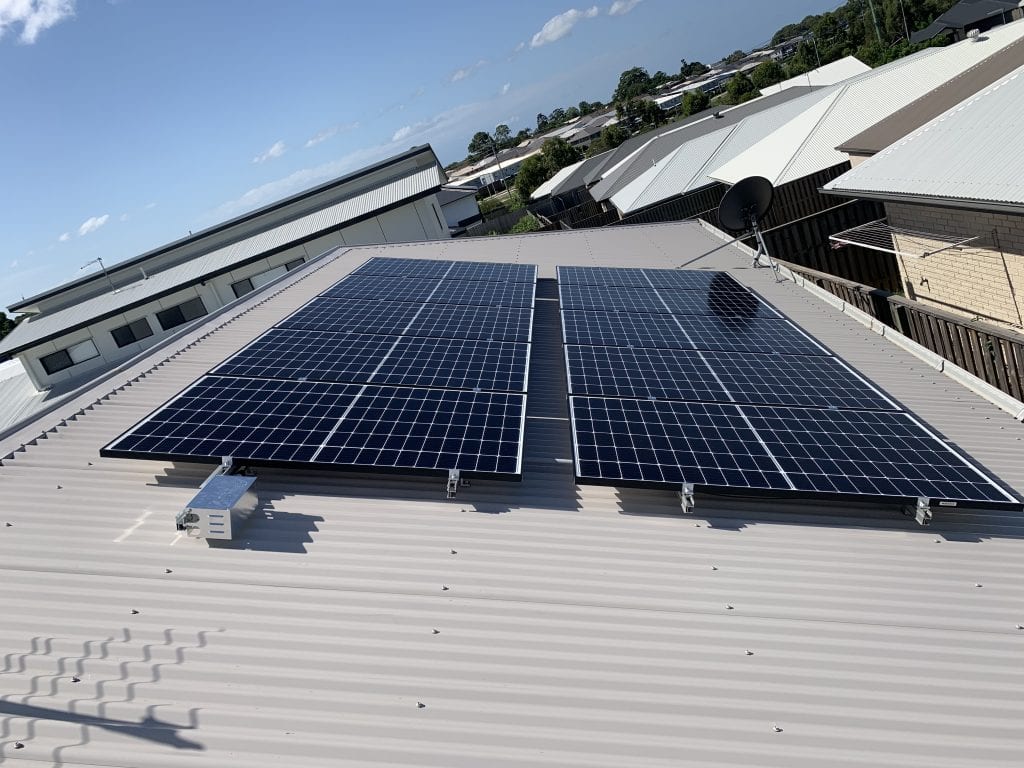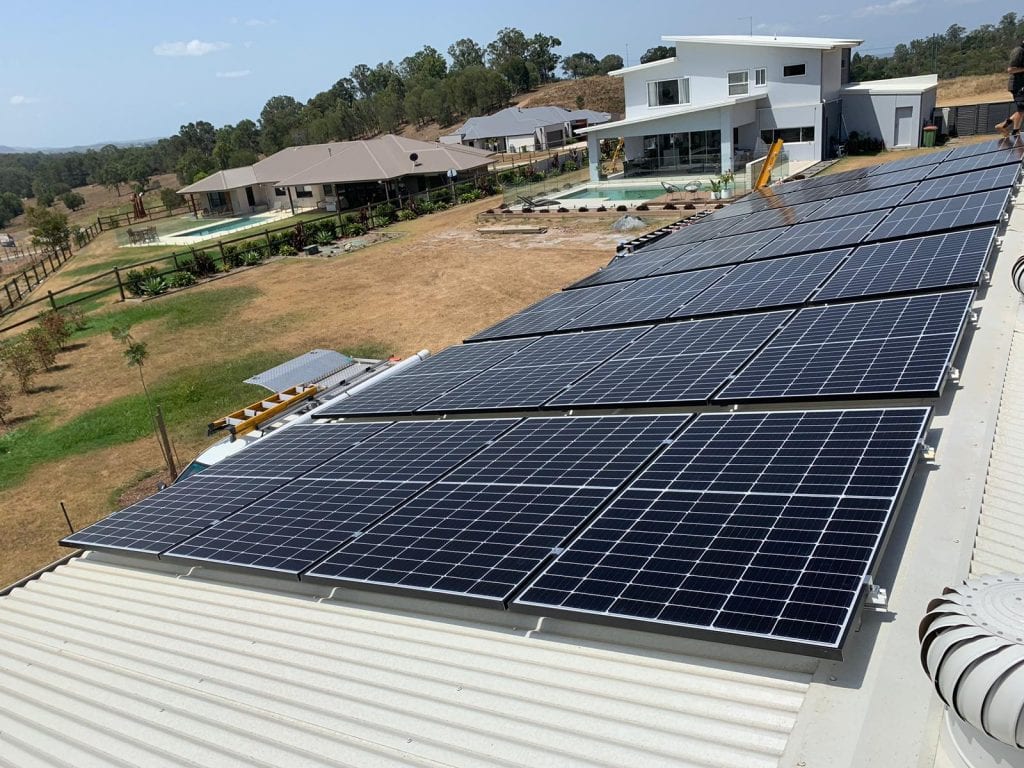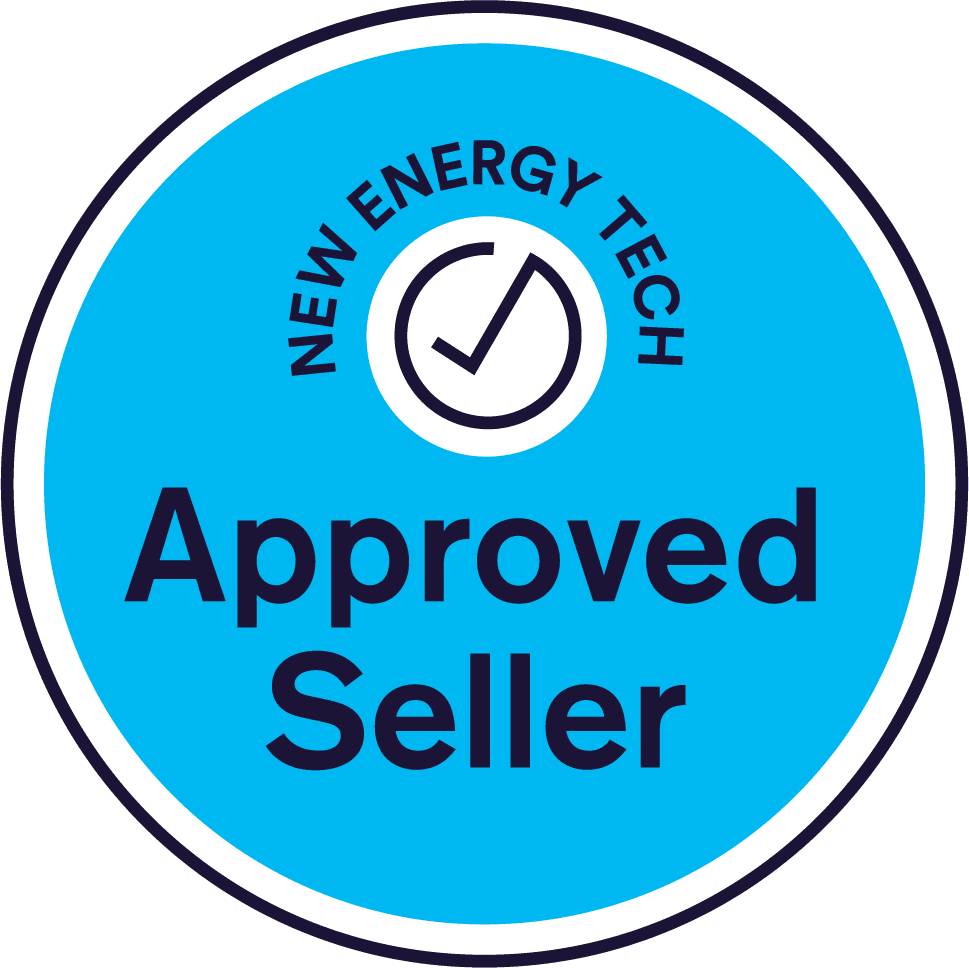Warranty and tech support today: 9
Warranty and tech support long-term: 9
Performance: 9
Price: 7.5
Value for money: 9
Total Rating: 8.7/10
Who are they?
Q CELLS was founded in Germany in 1999 and focussed completely on designing and developing solar panels and related equipment. In 2012 Q CELLS was acquired by Hanwha Group, a South Korean conglomerate, and became Hanwha Q CELLS. Hanwha, founded in 1952, is a Fortune 500 company (and has been for 14 years). This means it is one of the largest companies in the world, with revenues of ~US$44bn. Being a conglomerate they have their fingers in many pies, including aerospace, chemicals, construction, financial services, and more.
Side note: You’ll see the company name as Q CELLS, Q-CELLS, QCELLS, Q Cells, Q-Cells, and probably more. Their official website says Q CELLS (which is why I’ve used it here), and the official URL is www.q-cells.com.
Q CELLS have a long history of service in Australia, with an office in Sydney. One in ten panels installed in 2018 were Q CELLS panels. They are actively involved in testing at the Alice Springs Desert Knowledge solar test facility and provide extensive warranty and support service throughout Australia.
What do they do?

Q CELLS produce a range of panels for the low-mid to high end of the market. Their top-of-the-range is the high efficiency Q.PEAK DUO, a monocrystalline module available in 315-330W, featuring half-cut cells, more busbars, and up to 19.9% efficiency. The Q.PEAK is 300-320W, up to 18.6% efficiency, also monocrystalline. And the Q.PLUS is a polycrystalline module; 275-285W, up to 17.4% efficiency.
Why are they good?

Q CELLS combine the best of both worlds; German engineering with Korean dedication. The solar panels are still designed in Germany, and are currently manufactured in China, Malaysia or South Korea with their German managed Quality Assurance processes covering all plants. They are headquartered in Seoul, South Korea.
Warranty
Q CELLS have a 25 year product warranty and 25 year performance warranty on their flagship Q.Peak DUO Korean made modules. This market leading warranty proves their dedication to their quality and back up service. Q CELLS provide a ‘Triple Yield’ warranty, unique in the market in that it covers Hot-Spots and PID, and including their Tra.Q technology.
Hanwha, Q CELLS parent company, is the oldest company of those in the solar panels industry. This means that they can honour their warranty and stand by as it is provided by a company that can service it – unlike companies offering a 25 year warranty, but have only existed for 15.
Q CELLS is also a Tier 1. This is a rating provided by Bloomberg’s New Energy Finance (BNEF) team and is roughly a measure of how financially safe a company is calculated by looking at their financial past, debt structure, manufacturing capability, and large projects using their panels. It is skewed by how popular the panels are, and doesn’t correlate directly with panel quality, although it does give you an idea of how safe the company is from going bankrupt and invalidating your warranty.
Quality Assurance & Quality Control
However, in an ideal world you’d never hope to use a warranty – the product wouldn’t fail. And this is where Q CELLS stand out.
Q CELLS surpass many other manufacturers with the depth of their quality control and quality assurance practises. They test their panels in the deserts of Saudi Arabia and Alice Springs and the humid tropics in India. They even test them in James Cook University’s Cyclone Testing Station in Queensland, subjecting them to a once-in-500-years cyclone event.
Since 2011, Q CELLS is the first and only solar panel manufacturer to have continually and successfully participated in the VDE Quality Tested Program, the internationally renowned independent German certification authority.
There’s more. Salt mist corrosion can destroy panels, and as ~80% of Australians live in a coastal zone, this is definitely a factor to consider. Even more so if you’re lucky enough to wake up to a view overlooking the ocean! Q CELLS panels have been tested according to Severity Level 6, the highest level defined in the IEC testing standards.
Q CELLS also have a trademarked Tra.Q system, a scannable bar-code on every panel that can be used to trace the entire manufacturing process from raw material acquisition to production and delivery.
Technologies
Low Light
Q CELLS also have been designed to perform well in low light conditions (such as clouds) and capture light at low angles (such as at dawn or dusk), meaning more and more consistent power every day. To put numbers to the words, Q CELLS panels achieve 98% nominal efficiency even at 200W/m2.
PID
PID, or Potentially Induced Degradation, is when power, instead of going from the solar cell to the wiring to the inverter, “leaks” into other parts of the panel (e.g. frame, glass).
The Q CELLS’ Anti PID Technology (APT) optimizes the cell production process so that the negative effects of leakage currents are already eliminated at the cell level.
Hot Spots
I’ve mentioned that Q CELLS’ warranty covers hot spots, whereas others don’t. This is because they feel they’ve all but eliminated the problem!
A hot spot is much as it sounds; when a part of the solar panel gets overheated, sometimes over 250°C. As you’d expect, this is bad. Initially it causes a reduction of power, and then it leads to the cell burning through (a solar panel is made of cells, usually 60 or 72 squares); it even has the potential to cause the whole solar panel to catch fire!
What causes hot spots? A combination of manufacturing/installation defects and how the panel is used. The former is when the manufacturing process causes micro cracks within the cell, or a careless installer rough-handles the solar panel. The latter is shade; if one cell is shaded, but the rest are not, the power-producing unshaded cells can cause the shaded cell to use power, not generate it! How does it use this power? By generating heat.
So how does Q CELLS overcome this problem? They test every single solar cell before they proceed to the panel manufacturing process. Every cell, is tested by applying a reverse current (simulating a shading situation), and an infra-red camera is used to determine if any areas are heating up. This detection process has a 100% success rate in finding potential faults. If the cell has a fault, it won’t proceed to the panel production stage, it is recycled and won’t end up in the panel you buy.
Q CELLS are currently the only known panel manufacturer to provide a full warranty against hot-spot failure.
PERC & LeTID
PERC panels have been around for a while now. The technology, which stands for Passivated Emitter and Rear Cell, was invented at the University of New South Wales (yup, it’s an Aussie invention) in the ‘80s, and has been getting into mass-produced panels over since the mid ‘00s. Without going into the science, it makes panels more efficient.
However, PERC panels can suffer from LeTID (the solar industry loves acronyms). LeTID is Light and elevated Temperature Induced Degradation (I have no idea why the e is not capitalised). As the name suggests, it is a type of degradation, meaning that over time it reduces the efficiency and output of the solar panel. This is bad.
Why do I mention it here, in my Q CELLS write-up? Because it was engineers working for Q CELLS that first discovered LeTID – and were also the first to “solve” the problem! Although many manufacturers have since introduced innovations to counteract LeTID in their solar panels, the fact that Q CELLS were the first (to find and fix) says a lot about their R&D – which no doubt applies to other aspects of their products.
DNV-GL
Det Norske Veritas – Germanischer Lloyd (DNV-GL) are an international certification and classification group, based in Norway, founded way back in 1864. Every year since 2016 they have put panels through rigorous testing to see how good they are. More information about the DNV-GL tests can be read in my review of Phono Solar panels here.
Q CELLS have been Top Performers all three years – only four other panels have done so. In 2018 they excellent in each of the five tests.
Conclusion
There’s no doubt Q CELLS produce some of the most advanced panels on the market. Their quality checking is outstanding, which leads to the excellent testing results. Q CELLS are certainly a top performer and well and truly justify their position as one of the market leaders for solar manufacturers globally.
Written by James Gibbins, our in-house Engineer who has completed a Master’s degree in Electrical and Electronics Engineering.











